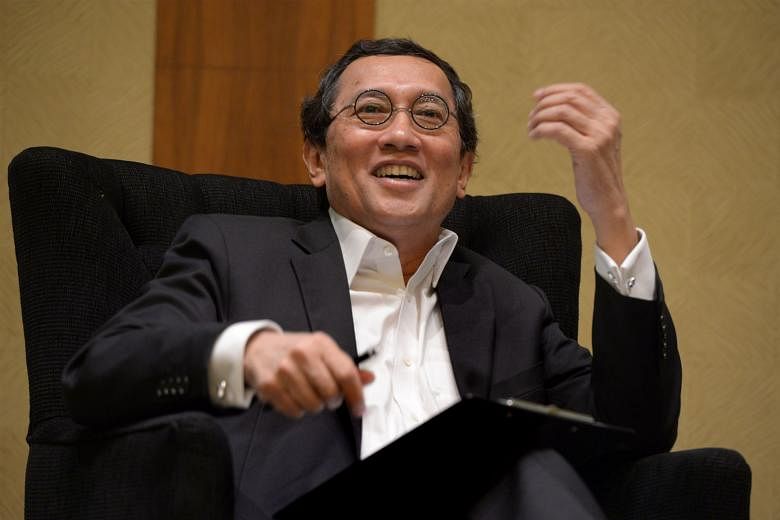Singaporeans have enjoyed half a century of independence, but that happy state is never a given, Ambassador-at-large Bilahari Kausikan said yesterday.
Mr Kausikan, 60, the Institute of Policy Studies' second S R Nathan Fellow for the Study of Singapore, was responding to a question at a public lecture on whether Singapore's sovereign status was guaranteed.
Calling it "a very good question", the veteran diplomat, who was ambassador to Russia and Singapore's Permanent Representative to the United Nations (UN) from 1995 to 1998, said: "You can remain formally sovereign, but your sovereignty could be severely compromised... we must be conscious that that is not to be taken for granted."
For example, he said, the 193 countries that make up the UN were sovereign, but beyond their "one seat, one vote and one flag" there, some were either being yanked every which way by major global powers or rent asunder by internal conflicts.
He made the comments at his first of five lectures that will run throughout the year and focus on, among other things, United States-China ties, threats to comity in South-east Asia and how ready Singaporeans were for the future.
The year-long fellowship, which kicked off in 2012 and now has a fund of almost $6 million, is for deeper research into what IPS director Janadas Devan called "Singapore-centric" areas of policy.
At the start of his talk at the NUSS Kent Ridge Guild House, Mr Kausikan noted that "the level of public interest in and understanding of foreign policy is not high" in Singapore.
That, he added, was undesirable because first, Singaporeans lived in a "complicated and dangerous region" and second, with everyone hyper-connected to everyone else today, what happened abroad would affect what happened at home to some degree.
Being more plugged into what was happening elsewhere in the world would give them "a sense of proportion" when they discussed domestic policies.
He added: "Too many of our compatriots, especially... the intelligentsia, sometimes seem almost ashamed of being Singaporean, whereas we are quite often the object of admiration and emulation by foreigners."
Mr Kausikan, who, in his 31 years in public service, worked with all of Singapore's three prime ministers and most of its foreign ministers, went on to dissect the dangers of the rickety global political order today, one in which countries were never sure where they stood. In contrast, during the Cold War, they were clearly either for the US or the Soviet Union, or sat on the fence.
Post-Cold War, countries still did not know what the pecking order was. And too often, he said, they dealt with one another unrealistically. For example, when his European friend said young Europeans had "embraced the idea of Europe", Mr Kausikan demanded: What about jobless, non-white Muslim Europeans? Or profligate Greeks versus austere Germans?
He said: "There is no satisfied country powerful enough to maintain the existing global order by itself, nor is there any satisfied country that can offer consistent help to maintain the existing global order. There is no country that is simultaneously dissatisfied enough and powerful enough to change the existing global order."
As for President Xi Jinping's China dream, he said: "It's so broad that there's room for sweet dreams - or nightmares."
When another audience member asked if Singaporeans should be allowed dual citizenship, he said: "Make some commitment one way or the other. I don't think very much of people who want to hedge like that."


